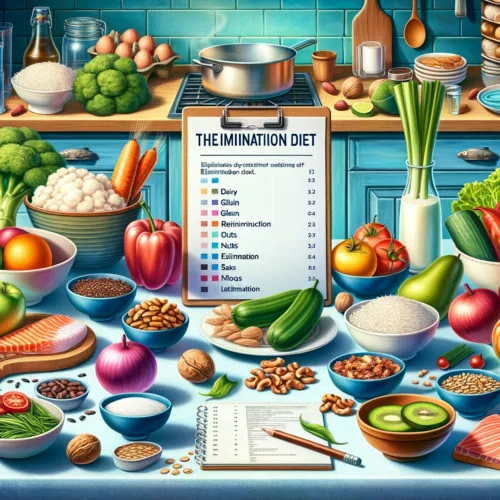Article hierarchy
The right amount of sugar per day is an essential part of our modern diet, but in recent years there has been an increased awareness of the importance of regulating this intake to maintain health. Sugar, which is found in a variety of foods, has potential consequences for our bodies and overall wellbeing. Leading medical organizations around the world are increasingly paying attention to optimal sugar intake and developing recommendations for limiting it. In this article, let’s look at the daily sugar intake and the role it plays in maintaining a healthy lifestyle. We will also discuss practical ways to reduce sugar intake and achieve balance in our diet.
The importance of regulating sugar intake
Regulating sugar intake is an important aspect of maintaining a healthy body. Sugar present in various foods can have a significant impact on our health and overall body condition. Understanding and controlling the amount of sugar intake becomes integral to maintaining a healthy lifestyle and preventing various problems associated with excessive sugar intake.
What is sugar?
It is one of the most common food items that we consume on a daily basis. It is a simple carbohydrate and includes glucose and fructose, which are the main sources of energy for our body. Sugar is not only present in sweets and carbonated drinks, but also in many other foods such as breads, sauces, yogurts, etc. Understanding the role of sugar in our diet and controlling its intake is important to maintain a healthy lifestyle. Consuming too much sugar can lead to various health problems including obesity, diabetes and heart problems. Therefore, it is important to be informed about the amount of sugar we consume and take steps to reduce our sugar intake to ensure that the sugar intake per day is acceptable to your body.
Definition of sugar and its history
Sugar is a general term used to refer to various types of sucrose, such as cane sugar and sugar beets. The main component of sugar is sucrose, a complex carbohydrate composed of glucose and fructose. The history of sugar goes back many centuries: sugar was first made exclusively from sugar cane, which was grown in tropical regions, and later a method of producing sugar from sugar beets was discovered, making it available for production and consumption in a wider area. Today, sugar is one of the most common additives in food products and is widely used in a variety of dishes and beverages, with its consumption having increased significantly in modern society.
Sugar and health

Sugar is an integral part of many foods, but its impact on health is a concern among health professionals. Understanding the role of sugar and consuming it properly plays an important role in maintaining a healthy lifestyle. Blood sugar levels need to be controlled to avoid health problems such as obesity, diabetes and cardiovascular disease, and for this, a proper diet is essential.
The effect of sugar on the body
The effect of sugar on the body is a subject of active research and is of interest to many people. When we eat food containing sugar, it is quickly digested and raises blood sugar levels. The body reacts by releasing insulin, the hormone responsible for processing sugar and converting it into energy or storing it as fat.
1. Increased risk of developing obesity
Excess sugar consumption is associated with an increased risk of obesity. High-calorie foods rich in sugar often do not provide adequate satiety and can lead to excessive eating. In addition, excess sugar in the body can be converted into fat stores, contributing to weight gain and obesity.
2. Effects on energy levels and mood
Sugar can have an effect on energy levels and mood. After consuming a sweet product, blood sugar levels rise quickly, causing a feeling of energy and alertness. However, this state can be temporary as sugar levels drop rapidly afterward, which can lead to mood swings, irritability and fatigue.
3. Possible problems with the cardiovascular system
Excessive sugar intake can have negative effects on the cardiovascular system. Elevated blood sugar levels can contribute to the development of insulin resistance and metabolic syndrome, which increases the risk of cardiovascular disease, including arterial hypertension, heart failure and myocardial infarction.
Sugar intake per day

Sugar intake is an important aspect of maintaining a healthy lifestyle. Various medical organizations offer recommendations on the amount of sugar that should be consumed per day.
Recommendations from medical organizations
Various medical organizations offer their recommendations for sugar intake as part of a healthy lifestyle. Here are some examples:
1. World Health Organization (WHO)
WHO recommends limiting the intake of free sugars to no more than 10% of the total energy value of food throughout the day. Determining a specific amount in grams requires knowledge of the total energy value of the food a person consumes. For example, if a person consumes 2000 calories per day, the maximum amount of free sugars would be 200 calories (10% of 2000). Since 1 gram of sugar contains approximately 4 calories, this means that it is recommended to limit sugar intake to 50 grams throughout the day.
At the same time, the WHO also calls for reducing the intake of free sugars to 5% for additional benefits and health maintenance. This means that at 2,000 calories per day, the maximum amount of free sugars should not exceed 100 calories (5% of 2,000), which equals about 25 grams per day.
2. American Heart Association (AHA).
The AHA recommends limiting your intake of added sugar to 6 teaspoons per day for women and 9 teaspoons per day for men. One teaspoon of added sugar is approximately equal to 4 grams. Consequently, it is recommended to not exceed 24 grams of sugar per day for women and 36 grams of sugar per day for men.
3. European Association for the Study of Obesity (EASO)
EASO also encourages limiting sugar intake. They recommend that the daily sugar allowance should not be more than 5% of the total energy consumed during the day. This includes both added sugar and naturally occurring sugars, such as fructose, which may be present in juices. That’s about 25 grams per day.
How to reduce your sugar intake

Limiting sugar intake can be a challenge in everyday life, but there are practical approaches that can help you achieve this goal. Here are some recommendations:
Reading product labels
Carefully read the nutritional information on food packaging. Pay attention to the sugar content in grams and take it into account when choosing products.
Limiting sugary drinks
Sugary drinks, including sodas, fruit juices, and sweet tea, are a major source of added sugar. Try replacing them with water, soft drinks without added sugar, or low-fat milk.
Home cooking
Cook more of your food at home to have more control over sugar content. Use natural ingredients and avoid adding extra sugar to your meals and drinks.
Consider replacing sweets with lower-sugar alternatives. For example, you can choose fruit or nuts as a snack instead of candy or cookies.
Gradual reduction of sugar intake
If you find it difficult to completely eliminate sugar from your diet, start by gradually reducing your sugar intake. Gradual changes can be more sustainable and easier to incorporate into your daily life.
Ask for help
If you find it difficult to manage limiting your sugar intake on your own, see a dietitian or doctor. They can develop a personalized diet plan and offer advice and support.
Limiting your sugar intake may take some effort and getting used to, but it is a valuable step in maintaining your body’s health and well-being. Over time, you may experience positive changes and enjoy new eating habits that support your health.
The norm of sugar per day – conclusion
Sugar plays a significant role in our food culture and consumption. However, to maintain a healthy lifestyle, it is important to balance and control your sugar intake.
Limiting sugar intake has been linked to a number of health benefits, including reducing the risk of obesity, maintaining energy levels and mood, and preventing cardiovascular health problems.
It is important to remember that sugar intake recommendations can vary depending on your body and individual needs. It is recommended to consult a physician or dietitian for personalized recommendations and to develop a nutrition plan that reflects your unique situation and goals.
Limiting your sugar intake can be a challenge, but with gradual changes and conscious choices in your daily life, you can achieve balance and maintain a healthy lifestyle. Remember, moderation and variety are key to achieving harmony in your dietary sugar intake.















